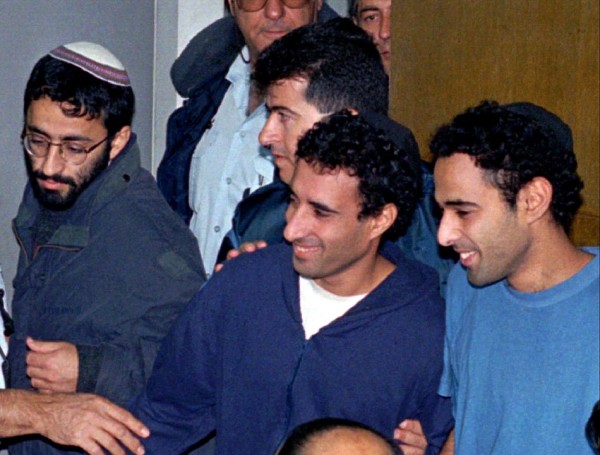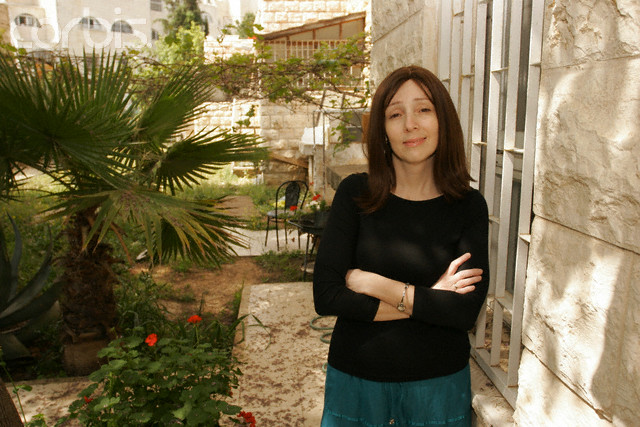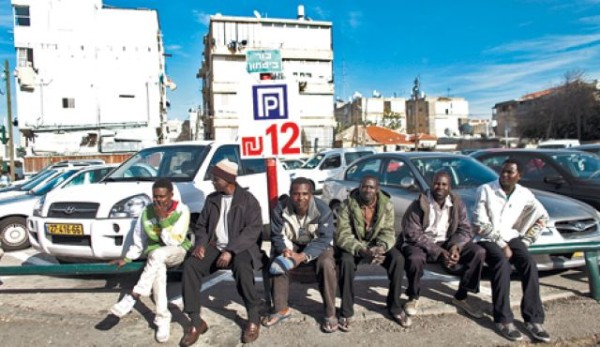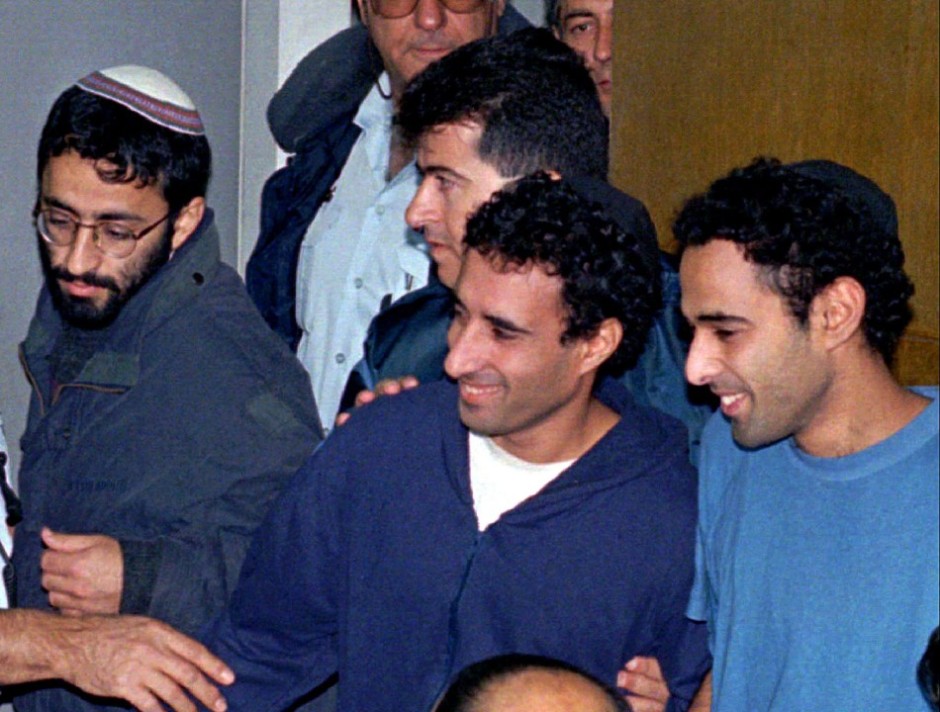Larisa Trembovler’s name doesn’t exactly ring a bell, not even in Israel. In case you’ve forgotten, she’s the wife of Yigal Amir, who may be one of the most hated men in Israel.
Why on earth would she want to marry a wretched assassin and villain like Amir? If you’re interested in the answer, you should watch Beyond the Fear, a film by Herz Frank and Maria Kravchenko scheduled to be screened at the Canadian International Documentary Festival (Hot Docs) in Toronto on April 25, April 27 and May 3.
The film starts, of course, with Amir, a Bar Ilan University law student who shot and killed the prime minister of Israel, Yitzhak Rabin, on November 4, 1995, just minutes after he had delivered a pep talk at a peace rally in Tel Aviv. Staunchly opposed to the Oslo accords that Israel and the Palestinian Authority had signed in September 1993 under Rabin’s supervision, Amir fired three shots at Rabin, mortally wounding him and plunging the country into mourning.

At his hearing, Amir — an Orthodox Jew affiliated with the religious nationalist camp — freely admitted that he had murdered Rabin to register his disapproval of Rabin’s land-for-peace policy. Being supremely sure he had performed a mitzvah, he expressed no remorse whatsoever. Almost 20 years on, Amir is locked up in jail, serving a life sentence.
As this generally intriguing movie suggests, most Israelis despise Amir. “Let him rot in prison!” exclaims a man. Even Amir’s poor mother is grief-sricken by the magnitude of his dasdardly crime.
So what brought Trembovler, an educated and refined Russian immigrant with a PhD in philosophy, to Amir’s doorstep?
Trembolver, a graduate of Moscow State University, initiated a correspondence with Amir in 1997, when she was still married to her first husband, a fellow Russian. The mother of four children, she was smitten by Amir, regarding him as an idealist who had been driven to despair by Rabin’s rapprochement with the Palestinians and who had sacrificed himself on behalf of his beloved nation. As far as she was concerned, Amir was neither a scoundrel nor a criminal.
The film, far from unfolding in conventional linear fashion, skips back and forth. After reviewing Rabin’s assassination, it dwells on Trembovler, an Orthodox woman who was brought up by her grandmother following her parents’ divorce. The filmmakers tell us nothing about this period. Nor do they explain why she became an observant Jew, a yawning gap in the film. Presumably, she shares his right-wing political views, but she does not express them in the film. Which is odd.

Amir, in several scenes, is heard telling bedtime biblical stories to his son, Yinon, who was conceived after Trembovler won the right to conjugal visits. Amir sounds like a loving and engaged father, a far cry from the hard and hateful image he usually projects.
Amir’s lawyer appears as well. Claiming not to be a Zionist, he believes Israel should withdraw from the occupied areas. So why does he represent Amir? He apparently admires Amir because he’s so faithful to his unbending principles.
Trembovler’s friend talks about her and expresses amazement that she gave up a promising academic career to marry Amir. Trembovler admits she fell in love with him despite some reservations. Although she comes across as a serene, self-assured person, she acknowledges she has fallen into the pit of despair on occasions. She doesn’t elaborate, which is a pity. Is she lonely? Is she sorry she fell for Amir?
How she supports herself and her children also remains a mystery. Does she receive government welfare payments? Is she gainfully employed? Do sympathizers help her? These questions stay unanswered.
For all the publicity she has garnered, Beyond the Fear does not really penetrate Trembovler’s body armor. To paraphrase Winston Churchill, she’s a puzzle wrapped in an enigma.
***
There are about 65,000 illegal African migrants in Israel, the majority of whom are from Sudan. They live in fear of being deported, never knowing when their time will come. Anat Gordon’s film, Mussa, which will be screened on April 24, April 26 and May 3, centers around Mussa Atief, an 11-year-old Sudanese boy who lives with his hard-working parents in a decrepit building near the old central bus station in Tel Aviv.

For reasons which are eventually explained, Mussa is a mute. He understands Hebrew, but does not utter a word of it. He attends a school in affluent north Tel Aviv, unlike nearly all of the children of migrants from Africa. He’s an amiable kid with a big smile, but he remains silent. He has a few Israeli friends and they treat him nicely. His teacher is kind and empathetic, explaining to pupils why students like Mussa have difficulty adjusting to Israel.
The film charts Mussa’s encounters with his school mates, his teacher, his father — a construction worker who seems content in Israel — and his mother, who fears deportation. It’s a workmanlike and sometimes moving portrayal of the migrants’ hard life in a new country.
